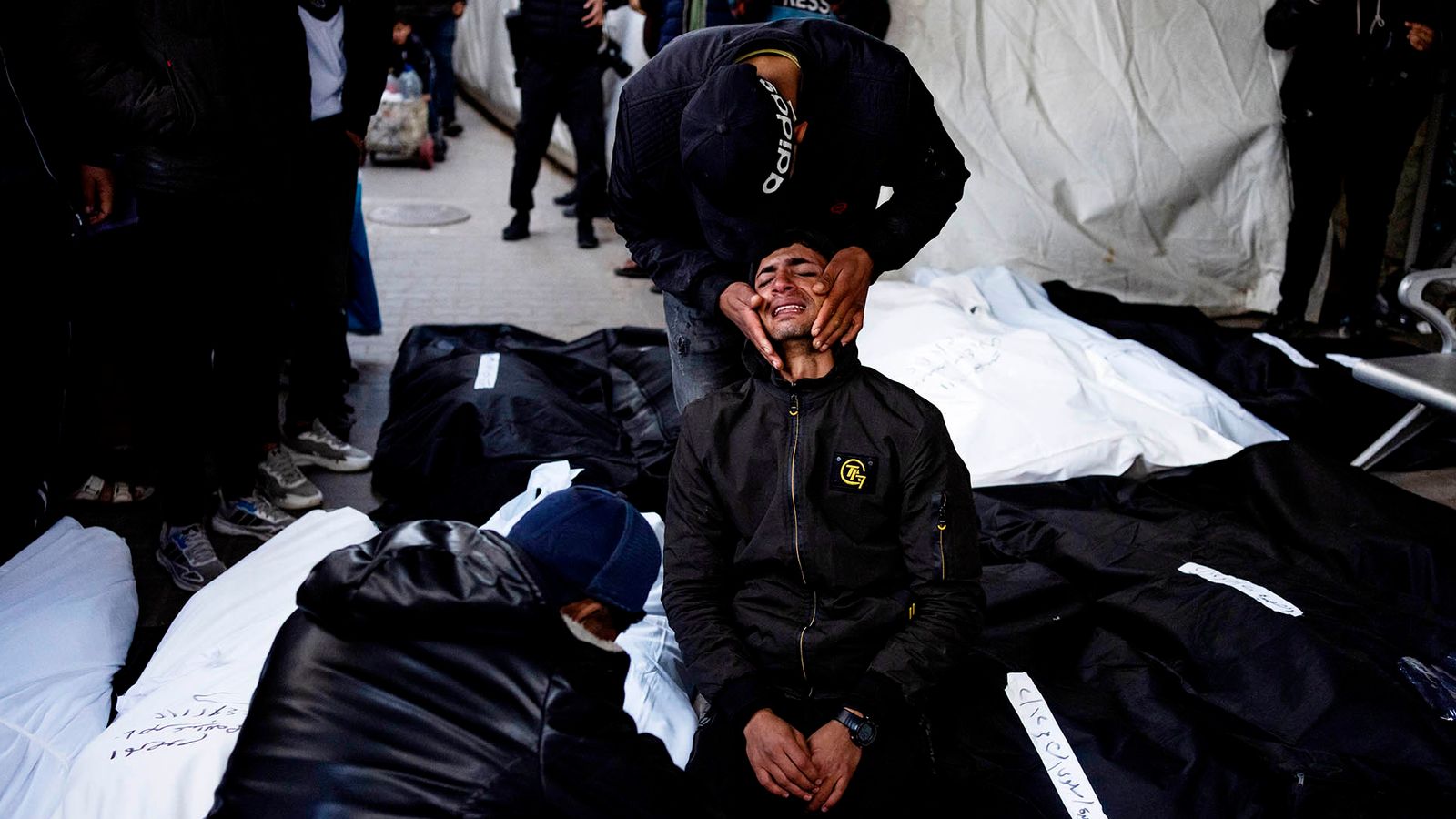Israel should “stop and think” before taking any further action in Rafah, Foreign Secretary Lord Cameron has said.
The former prime minister said the UK was “very concerned” about the situation on the Gaza-Egypt border.
Local health officials have said 37 people were killed in strikes on the city.
Middle East latest: Biden reportedly insults Netanyahu in private
Please use Chrome browser for a more accessible video player
The foreign secretary said it was “impossible to see how you can fight a war amongst these people”, referring to the civilians in Gaza.
“There’s nowhere for them to go,” he added, with the border crossing to Egypt shut.
“We want Israel to stop and think very seriously before it takes any further action.
Israel-Hamas war: Middle East one move away from bigger war – amid diplomatic race to defuse escalating crisis
Lord Cameron faces backlash after he hints at move to recognise Palestinian state
Israel-Hamas war: Lord Cameron tells Netanyahu that UK still believes in a two-state solution
“Above all, what we want is an immediate pause in the fighting – we want that pause to lead to a ceasefire, a sustainable ceasefire without a return to further fighting.”
The Israeli military said it had conducted a “series of strikes” in southern Gaza on Monday.
It said the strikes had now concluded, without elaborating on the targets or assessing the potential damage or casualties.
Hostages freed
Israel later shared that two hostages had been rescued by special forces from Rafah.
The army named them as Fernando Simon Marman, 60, and Louis Har, 70, both taken from Kibbutz Nir Yizhak in the 7 October Hamas attacks.
Israel says it has expanded its ground operation in southern Gaza to root out Hamas fighters.
On Sunday, US President Joe Biden warned Israel against launching a ground invasion of Rafah without a “credible” plan to protect civilians.
Israel’s prime minister, Benjamin Netanyahu, appeared defiant in a media appearance later in the weekend, saying: “We’re going to do it. We’re going to get the remaining Hamas terrorist battalions in Rafah.”
Escalating crisis
Mr Netanyahu said the Israeli Defence Forces (IDF) believe four Hamas cells are operating inside Rafah.
But he assured that the IDF would only carry out the operation “while providing safe passage for the civilian population”
Egypt, which operates the border crossing at Rafah, said an offensive would violate international war and risk a refugee crisis spilling into their nation.
Qatar also warned of disaster while Saudi Arabia warned of “very serious repercussions”.
Following the 7 October attacks carried out by Hamas last year, Israel told those in Gaza to move south to areas like Rafah as troops entered the region.
Some 1.4 million Gazans have now relocated there, mostly in makeshift camps or ‘tent cities’.
An Israeli government spokesperson suggested civilians could find refuge in tent camps that are yet to be built, and said the international community was “more than welcome” to send shelter equipment.
Read more:
The scale of Rafah’s vast tent city
Inside Gaza’s tunnel network and hostage cell
Israel prepares for possible war with Lebanon
Please use Chrome browser for a more accessible video player
Eylon Levy told Sky News: “We want civilians to get out of harm’s way. We don’t want to come in all guns blazing because we understand how catastrophic that would be.”
Be the first to get Breaking News
Install the Sky News app for free
Asked where the more than one million civilians in Rafah should go, Mr Levy said: “That is part of the plan that the Israeli army will have to present [to] the prime minister because we take our obligations under international law to keep civilians protected very seriously.
“There are open spaces in Gaza, there are places where it is possible to set up tent encampments so that civilians can get out of harm’s way and not allow Hamas to use them as human shields.”








